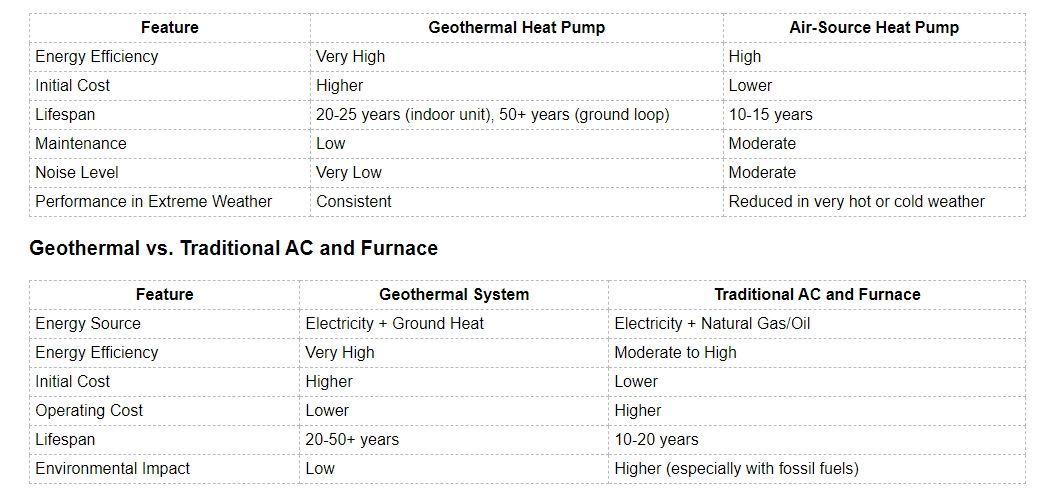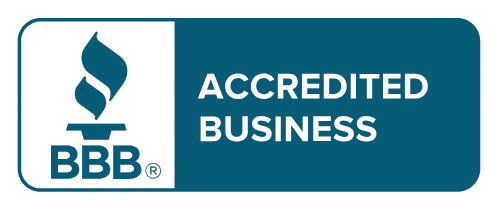Geothermal Heating and Cooling: Charleston's Energy Secret
Key Takeaways
- Geothermal heating and cooling systems use the earth's constant temperature to heat and cool homes efficiently
- These systems can reduce energy costs by up to 70% compared to traditional HVAC systems
- Geothermal systems are environmentally friendly, producing no direct emissions
- Installation costs are higher upfront but offer significant long-term savings
- Charleston's mild climate and high water table make it ideal for geothermal systems
- Local incentives and federal tax credits can offset installation costs
- Geothermal systems can last up to 50 years, much longer than conventional HVAC units
Geothermal heating and cooling systems harness the earth's constant temperature to provide efficient climate control for homes in Charleston, SC. These systems offer a sustainable and cost-effective alternative to traditional HVAC units, making them an attractive option for homeowners looking to reduce their energy bills and environmental impact.
How Geothermal Systems Work
Geothermal heating and cooling systems take advantage of the stable temperature beneath the earth's surface. In Charleston, the ground temperature remains relatively constant at around 55-70°F year-round, regardless of the weather above ground.
The Ground Loop System
The heart of a geothermal system is its ground loop. This network of pipes is buried in the yard and filled with a water or antifreeze solution. As this fluid circulates through the pipes, it absorbs heat from the ground in winter and releases heat into the ground in summer.
Heat Exchange Process
Inside the home, a heat pump transfers heat between the ground loop fluid and the air in your home. In winter, the system extracts heat from the ground and distributes it throughout your house. In summer, the process reverses, removing heat from your home and depositing it back into the ground.
Benefits of Geothermal Systems for Charleston Homes
Geothermal heating and cooling systems offer several advantages that make them particularly well-suited for homes in Charleston.
Energy Efficiency
Geothermal systems are incredibly efficient, using 25-50% less electricity than conventional HVAC systems. This translates to significant energy savings for homeowners, especially during Charleston's hot and humid summers.
Cost Savings
While the upfront costs of installing a geothermal system can be higher than traditional HVAC units, the long-term savings are substantial. Many Charleston homeowners report energy bill reductions of 30-70% after switching to geothermal.
Environmental Impact
Geothermal systems produce no direct emissions, making them an environmentally friendly choice. This aligns well with Charleston's efforts to reduce its carbon footprint and preserve its natural beauty.
Longevity
Geothermal heat pumps typically last 20-25 years, while the ground loop can last 50 years or more. This longevity means fewer replacements and less waste compared to conventional HVAC systems.
Geothermal System Types Suitable for Charleston
Several types of geothermal systems can be installed in Charleston homes, depending on the property's characteristics and the homeowner's needs.
Horizontal Loop Systems
Horizontal loops are often used in Charleston homes with large yards. These systems require trenches about 3-6 feet deep, making them suitable for new construction or homes with ample land.
Vertical Loop Systems
For properties with limited space, vertical loop systems are an excellent option. These systems use deep boreholes, typically 100-400 feet deep, making them ideal for Charleston's urban areas or homes with small lots.
Pond/Lake Loop Systems
Charleston's abundance of water features makes pond loop systems a viable option for some homeowners. These systems use coiled pipes submerged in a nearby pond or lake, offering efficient heat exchange.
Installation Process and Considerations
Installing a geothermal system in a Charleston home requires careful planning and execution.
Site Assessment
A professional contractor will evaluate your property to determine the best system type and location for the ground loop. They'll consider factors like soil composition, water table depth, and available space.
System Design
Based on the site assessment and your home's heating and cooling needs, the contractor will design a custom geothermal system. This includes sizing the heat pump and planning the ground loop layout.
Excavation and Installation
The installation process involves digging trenches or drilling boreholes for the ground loop, laying the pipes, and connecting the system to your home. This phase can take several days to a week, depending on the system complexity.
Integration with Existing Systems
In many cases, geothermal systems can be integrated with existing ductwork, minimizing disruption to your home. However, some homes may require modifications to accommodate the new system.

Cost Considerations for Charleston Homeowners
The cost of installing a geothermal system in Charleston can vary widely depending on several factors.
Initial Investment
Geothermal systems typically cost more upfront than traditional HVAC systems. In Charleston, installation costs can range from $10,000 to $30,000 or more, depending on the system size and type.
Long-Term Savings
Despite the higher initial cost, geothermal systems offer significant long-term savings. Many Charleston homeowners recoup their investment within 5-10 years through reduced energy bills.
Available Incentives
Charleston homeowners can take advantage of several incentives to offset the cost of geothermal installation:
- Federal tax credits cover 30% of the installation cost with no upper limit
- South Carolina offers additional state tax credits for renewable energy systems
- Some local utilities provide rebates or low-interest financing for geothermal installations
Maintenance and Upkeep
Geothermal systems require minimal maintenance compared to traditional HVAC units.
Regular Check-ups
Annual inspections by a qualified technician can help ensure your system operates at peak efficiency. These check-ups typically involve examining the heat pump, checking fluid levels, and inspecting electrical connections.
Filter Changes
Like traditional HVAC systems, geothermal heat pumps use air filters that need regular replacement. In Charleston's humid climate, changing filters every 1-3 months can help maintain indoor air quality and system efficiency.
Ground Loop Maintenance
The ground loop itself requires little to no maintenance. However, it's important to avoid planting deep-rooted trees or building structures over the loop area to prevent potential damage.
Geothermal Performance in Charleston's Climate
Charleston's climate presents both advantages and challenges for geothermal systems.
Cooling Performance
Geothermal systems excel at cooling, making them ideal for Charleston's hot, humid summers. They can effectively remove heat and humidity from your home, providing consistent comfort even on the hottest days.
Heating Performance
While Charleston winters are mild, geothermal systems can still provide efficient heating when needed. The constant ground temperature ensures reliable heat extraction even on the coldest days.
Humidity Control
Geothermal systems are particularly effective at controlling humidity, a significant advantage in Charleston's muggy climate. This can lead to improved indoor air quality and reduced risk of mold growth.
Comparing Geothermal to Other HVAC Options
To better understand the benefits of geothermal systems, let's compare them to other common HVAC options in Charleston.
Geothermal vs. Air-Source Heat Pumps

Common Misconceptions About Geothermal Systems
There are several myths about geothermal systems that Charleston homeowners should be aware of:
- Myth: Geothermal systems only work in certain climates. Fact: Geothermal systems can be effective in virtually any climate, including Charleston's.
- Myth: Installing a geothermal system requires a large property. Fact: Various system types can accommodate different lot sizes, even in urban Charleston.
- Myth: Geothermal systems are noisy. Fact: Geothermal systems are typically quieter than traditional HVAC units.
- Myth: Geothermal systems require frequent maintenance. Fact: These systems generally require less maintenance than conventional HVAC systems.
- Myth: Geothermal systems are new and untested technology. Fact: Geothermal technology has been used reliably for decades.
Choosing a Geothermal Contractor in Charleston
Selecting the right contractor is crucial for a successful geothermal installation. Here are some tips for Charleston homeowners:
- Look for certified geothermal installers with experience in the Charleston area
- Ask for references and check online reviews
- Get multiple quotes and compare them carefully
- Ensure the contractor is familiar with local regulations and incentives
- Verify that the contractor offers warranties on both equipment and installation
The Future of Geothermal in Charleston
As Charleston continues to focus on sustainability and energy efficiency, geothermal systems are likely to become increasingly popular.
Growing Adoption
More Charleston homeowners are expected to adopt geothermal systems as awareness of their benefits grows and installation costs decrease.
Technological Advancements
Ongoing research and development in geothermal technology may lead to even more efficient and cost-effective systems in the future.
Community Systems
Some Charleston neighborhoods may explore community geothermal systems, where multiple homes share a large ground loop network, potentially reducing installation costs.
Integration with Smart Home Technology
Future geothermal systems may offer better integration with smart home devices, allowing for more precise control and energy management.
Conclusion
Geothermal heating and cooling systems offer Charleston homeowners a sustainable, efficient, and cost-effective way to maintain comfortable indoor temperatures year-round. While the initial investment may be higher than traditional HVAC systems, the long-term benefits in energy savings, reduced environmental impact, and system longevity make geothermal an attractive option for many Charleston homes. As the city continues to embrace green technologies, geothermal systems are poised to play an increasingly important role in Charleston's energy landscape. For more information, you can visit our website or contact us.






